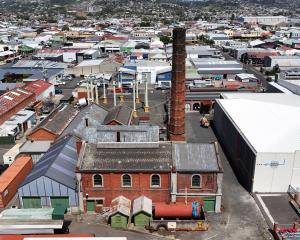
There is more to the recent push towards a community-based style of policing than simply getting more "bobbies back on the beat", a New Zealand Police spokesman explains.
"It's talking to the community and actually finding out what are the problems. Police might have a perception [of] what a problem is, but the community might have a different view," Inspector Lane Todd, the man in charge of community policing in the Southern police district, said.
For the past three years the force in New Zealand has been trying a new approach to community policing, with a clearer focus, increased organisational back-up and the commitment of more resources.
In the Southern police district, that increase in resources has equated to an extra 18 community constables and three sergeants, bringing the total community policing team to 35 working in more centralised teams across the district.
They are the Southern face of the New Zealand Police force's so-called "refreshed" approach to community policing.
Community policing as a concept has been around since the 1980s in New Zealand, but was given an extra push in response to a decline in public confidence in the police following the Irena Asher 111 emergency call failure and the Louise Nicholas rape allegations.
Police have acknowledged they cannot fight crime by themselves and that emergency response police staff do not have time to deal with problem-solving, Insp Todd said.
Community policing was employed in various guises internationally, and as a concept was quite complex.
In general, it involved a change of focus from reactive policing to problem-solving and community engagement, with an emphasis on police-community partnerships.
The idea was for officers to interact with their community by getting their input and responding to their concerns.
The officers became community organisers and co-solvers of problems.
It was a long-term strategy achieved by placing officers in long-term positions in specific communities.
To back up this community-focused policing, government funding in 2007 led to the hiring of 250 more community constables, including the extras for the Southern district.
Insp Todd believed the police were now better placed to make the policy work.
He said community constables were more focused and had targets, and police had put a lot of resources into it.
"This is a lot of new staff . . . taxpayers will expect to see some value for that money."
The biggest difference was that the new approach was more structured.
In Dunedin, for example, three community constables, who reported to a sergeant, devoted about a quarter of their time to liquor licensing issues, while three other officers focused solely on at-risk youth.
A prison liaison was based at the Otago Regional Corrections Facility in Milburn; two constables (based at Winton and Wanaka) focused on rural issues and a team of three in Alexandra had a tourism, youth and liquor focus.
Yet to start were two new constables based at the Queenstown Airport, who would focus on the growing Frankton area, and two constables and a sergeant in Wanaka who would focus on rural, youth and alcohol-related issues in the town.
The new positions were in addition to other constables already working in Mosgiel, South and North Dunedin, central Dunedin, Oamaru, Alexandra, Arrowtown and Southland.
Another aspect of community policing that had changed was a push to integrate the team with the entire organisation, and encourage a "whole of policing" approach to problem-solving, Insp Todd said.
For example, the community policing team might act on information received from general duties staff and tactical or inquiries teams might act on information received from the community policing team.
The community policing team also worked closely with other sections of the police, such as family violence teams or youth aid.
"It's not just the community constable's problem. It's actually all our problem."
Police were fully committed to the community policing model and it was a good opportunity to get some good results out of it, but that would take time, he said.
Some of the constables, such as the youth action team, were already getting good results, but their results were easier to measure because they were specifically focused on a few individuals.
For the other new constables it would be some time before police would be able to see how well the approach was working.
"It will take a long time before they have developed those relationships with the council the communities, their neighbours, etc . . . and get their teeth into significant projects."












